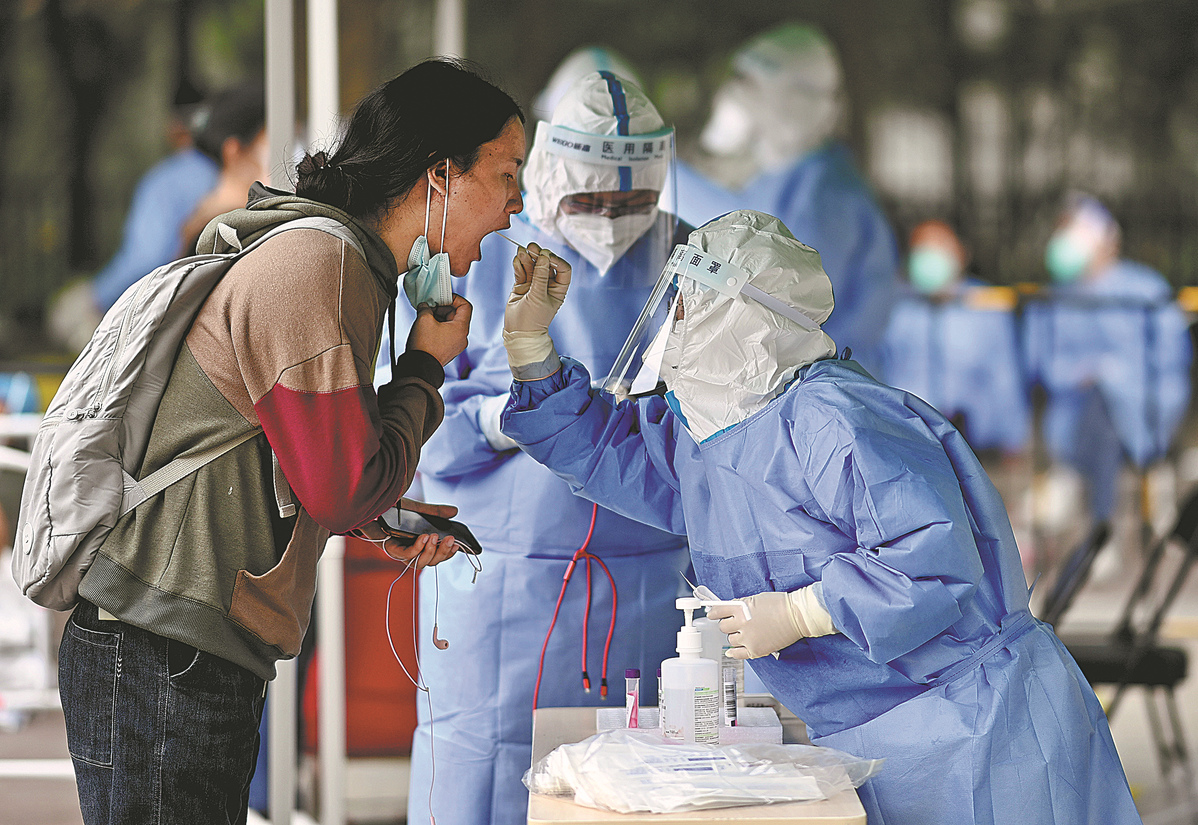China's resolute measures against Omicron pay dividends


BEIJING -- Following the onslaught of Omicron in Shanghai and the northeastern province of Jilin, Beijing has moved ever faster to curb the spread of new clusters.
The Chinese mainland reported 1,494 locally transmitted confirmed COVID-19 cases on Wednesday, of which 1,292 were in Shanghai and 48 were in Beijing. A total of 2,724 COVID-19 patients were discharged from hospital after recovery on the same day, the National Health Commission said Thursday.
Sticking to its dynamic zero-COVID approach, China has been battling the virus with more resolute measures that have begun to pay dividends.
Cutting off transmission lines
The latest COVID-19 resurgence in Beijing started on April 22, as new local confirmed cases were found in the districts of Chaoyang and Shunyi, with school students and tour groups involved.
Racing against time, the Chinese capital held a press conference overnight, mapped out the risk areas and put them under closed-loop management, in a bid to cut the transmission chains as soon as possible. There are currently five high-risk areas and 16 medium-risk areas in the city.
Beijing is also conducting three rounds of nucleic acid testing from Monday to Saturday. The first round has been completed, with over 19.8 million samples collected in five-in-one or 10-in-one tubes and 12 tubes showing positive results, said Li Ang, deputy director of the Beijing municipal health commission.
To stem infections in schools, major districts in Beijing have suspended in-person school classes of middle and primary schools and kindergartens and started online teaching.
Shanghai has also been adopting rigorous measures to curb the epidemic. It has divided the whole city into closed-off management areas, restrictive control areas, and prevention areas to mitigate and control the spread, with the former two zones under closed-loop management.
The Chinese economic hub reported 1,292 confirmed locally transmitted COVID-19 cases and 9,330 local asymptomatic carriers on Wednesday.
Now, Shanghai is speeding up the establishment of regular nucleic acid testing sites, so that residents have convenient access to testing.
Zhao Dandan, deputy director of the Shanghai municipal health commission, told a press conference Thursday that the city has been accelerating the vaccination of the elderly through measures including setting up temporary vaccination sites in nursing homes and arranging mobile vaccination vehicles in communities.
- Shehuo performance sets Guinness World Record in Qinghai
- China improves child welfare, strengthens care for minors
- Minister of Emergency Management removed from post
- Fujian reiterates private sector as a pillar of high-quality growth
- Video of two tigers at Chongqing theme park goes viral
- Former deputy head of China Tobacco sentenced to 12 years for bribery




































